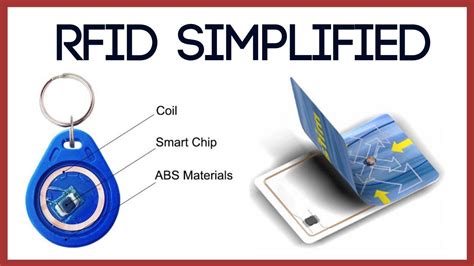radio frequency identification chip for healthcare When paired with an RTLS or indoor positioning system, RFID tags allow healthcare providers to not only track newborns, but also prevent older patients with dementia or other cognitive issues from wandering offsite, says Tim Gee, principal of Medical Connectivity Consulting. Tagmo – Android, NFC-enabled phones. Tagmo doesn’t need to be sideloaded anymore! It’s coming to Google Play! Tagmo is the simplest and most common way to make amiibo cards, and it’s my personal favorite. I love .
0 · where are rfid chips used
1 · what is meant by rfid
2 · radio frequency tracking
3 · radio frequency identification tags are
4 · radio frequency identification readers
5 · radio frequency identification examples
6 · how do rfid chips work
7 · define radio frequency identification tag
Here is what they said. Core NFC. With Core NFC framework, your apps can now support tag writing, including writing to NDEF formatted tags. The framework also provides supports for .
The rising implementation of radio-frequency identification (RFID) technology, specifically in the healthcare sector, demonstrates RFID technology as a favorable asset to healthcare organizations.Radiofrequency identification devices are tiny, potentially implantable appliances that can store . The rising implementation of radio-frequency identification (RFID) technology, specifically in the healthcare sector, demonstrates RFID technology as a favorable asset to healthcare organizations.
american express smart earn credit card benefits
Radiofrequency identification devices are tiny, potentially implantable appliances that can store clinical information that is able to be captured remotely.When paired with an RTLS or indoor positioning system, RFID tags allow healthcare providers to not only track newborns, but also prevent older patients with dementia or other cognitive issues from wandering offsite, says Tim Gee, principal of Medical Connectivity Consulting.
Radio frequency identification (RFID) has been considered one of the most promising technologies in healthcare and has been recognized as a smart tool with the potential to overcome many challenges that health care encounters such as inaccurate pharmaceutical stock, inability to track medical equipment, difficulty in tracking patient locations . Radiofrequency identification devices are tiny, potentially implantable appliances that can store clinical information that is able to be captured remotely. This scoping review examines the state of RFID technology in the healthcare area for the period 2017-2022, specifically addressing RFID versatility and investigating how this technology can contribute to radically change the management of public health.
Inspired by the significance of having a useful and viable RFID based solutions in healthcare, in this paper, we present the challenges and barriers faced by the healthcare sector in implementing the RFID based solution to improve various services provided by . The use of Radio-Frequency Identification (RFID) technology in healthcare, particularly within closed-loop systems, presents complexities, including potential limitations on interoperability that can affect patient safety.
Methods: This scoping review examines the state of RFID technology in the healthcare area for the period 2017-2022, specifically addressing RFID versatility and investigating how this technology can contribute to radically change the management of public health. One of these tools is radiofrequency identification (RFID), which has been used in retail for many years, but is now finding a home in healthcare. RFID uses radio waves to transmit information over a short distance. The rising implementation of radio-frequency identification (RFID) technology, specifically in the healthcare sector, demonstrates RFID technology as a favorable asset to healthcare organizations.Radiofrequency identification devices are tiny, potentially implantable appliances that can store clinical information that is able to be captured remotely.
When paired with an RTLS or indoor positioning system, RFID tags allow healthcare providers to not only track newborns, but also prevent older patients with dementia or other cognitive issues from wandering offsite, says Tim Gee, principal of Medical Connectivity Consulting. Radio frequency identification (RFID) has been considered one of the most promising technologies in healthcare and has been recognized as a smart tool with the potential to overcome many challenges that health care encounters such as inaccurate pharmaceutical stock, inability to track medical equipment, difficulty in tracking patient locations .
Radiofrequency identification devices are tiny, potentially implantable appliances that can store clinical information that is able to be captured remotely.

This scoping review examines the state of RFID technology in the healthcare area for the period 2017-2022, specifically addressing RFID versatility and investigating how this technology can contribute to radically change the management of public health. Inspired by the significance of having a useful and viable RFID based solutions in healthcare, in this paper, we present the challenges and barriers faced by the healthcare sector in implementing the RFID based solution to improve various services provided by . The use of Radio-Frequency Identification (RFID) technology in healthcare, particularly within closed-loop systems, presents complexities, including potential limitations on interoperability that can affect patient safety.
Methods: This scoping review examines the state of RFID technology in the healthcare area for the period 2017-2022, specifically addressing RFID versatility and investigating how this technology can contribute to radically change the management of public health.
where are rfid chips used
I'd like to know if there's an app that SENDS amiibos to the Switch or 3DS, not flash them to an NFC sticker/card. Does something like this exist? . I looked into this for a .
radio frequency identification chip for healthcare|radio frequency tracking